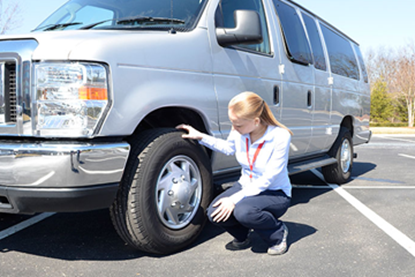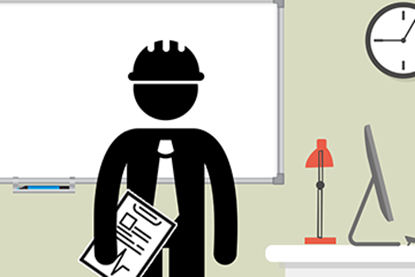You have no items in your shopping cart.
NON-OSHA
Excludes OSHA Content
Office Safety
Although accidents involving office personnel generally occur less frequently than mishaps to industrial workers, they do still occur and can result in serious injuries and even death. Office safety is the responsibility of everyone. You must understand what you can do to stay safe on the job, and you need to be aware of how to correct unsafe conditions. This course provides information you need to work safely in your office environment. Ideal learners include office, home office and remote workers.
$29.95
Office Safety (Canadian French)
Bien que les accidents de personnel de bureau soient généralement moins fréquents que les incidents touchant les ouvriers industriels, ils se produisent quand même et peuvent entraîner des blessures graves, voire la mort. La sécurité au bureau est la responsabilité de tous. Vous devez comprendre ce que vous pouvez faire pour rester en sécurité au travail, et vous devez savoir quelles actions prendre pour remédier aux situations dangereuses. Cet atelier fournit les informations nécessaires pour travailler en toute sécurité, dans votre environnement, au bureau. Le public cible pour cet atelier comprend les travailleurs de bureau, les travailleurs à domicile et les travailleurs à distance.
$29.95
Overhead and Gantry Crane Safety
Anyone who works with cranes knows not to underestimate the daily risk of collapse, electrical accidents, falls and other serious incidents. The power that makes overhead, gantry and similar cranes so useful also makes them dangerous. By properly maintaining and operating the cranes with which you work, you can protect yourself and your co-workers. Ideal learners are crane operators and their supervisors.
$29.95
15-Passenger Van Safety
Driving a van is not like driving a car. 15-passenger vans are more susceptible to rollovers, blind spots, weight distribution issues and special handling requirements. Take this course to learn the things you need to know about driving a 15-passenger van so you can prevent avoidable collisions and injuries. Make sure you and your passengers reach your destination. Ideal learners are 15-passenger van drivers.
$29.95
Access to Medical and Exposure Records for Employees (US)
The law requires your employer to provide you with access to your medical and exposure records. Why should you care? How do you get access? Take this course to find out! This course is ideal for all employees.
$29.95
Mobile Elevated Work Platforms
When you cannot move work to ground level, mobile elevated work platforms, or MEWPs, such as aerial, scissor and vertical mast lifts, may be an appropriate solution. Each type has its own unique characteristics and safety strategies of which you need to be aware. You will receive hands-on training about the specific equipment you will use, but this course will lay the groundwork by giving you an overview of some universal considerations for mobile elevated work platforms. This course is ideal for people who use or manage others who use mobile elevated work platforms.
$29.95






